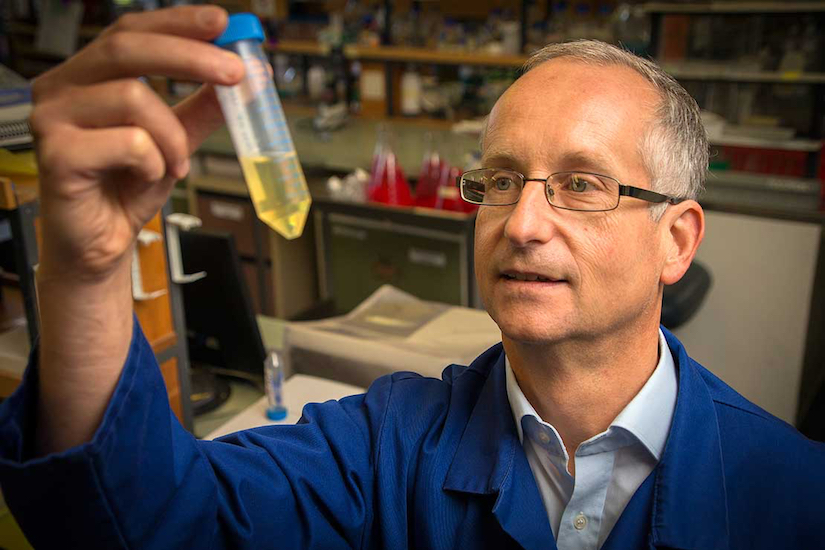
A Massey professor of microbiology has led new research that could yield a vaccine against an emerging deadly pathogen that has proven resistant to various treatments.
The possible strategy for a new vaccine has been developed for Pseudomonas aeruginosa, a pathogen which causes severe wound and lung infections in patients with weak immune systems. The infection typically infects the airway, urinary tract, burns, and wounds, and also causes other blood infections.
The pathogen was listed earlier this year on the World Health Organization’s first list of antibiotic-resistant ‘priority pathogens’ in the most critical category because of the severe infections and high mortality rates.
Professor Bernd Rehm, of the Institute of Fundamental Sciences, led the study and says the risks are high with the pathogen as there is currently no vaccine available to protect against it.
“This bacterial pathogen is found all over and is accepted worldwide as a public health risk due to its increasing infection rates combined with its ability to develop resistances to multiple classes of antibiotics. Due to a range of mechanisms for adaptation, survival and resistance to multiple classes of antibiotics, infections by this bacterium can be life threatening and it is emerging worldwide as a public health threat.
“This is the first study investigating the immunological properties of natural polymer particles formed inside pathogenic bacteria and the first to utilise these particles as carriers of the pathogen’s own antigens to be used as a particulate vaccine – in other words fighting the pathogen with its own weapons.”
The bacterium works by attaching itself to a person’s wound or lung tissue and producing a dense and slimy alginate biofilm, where bacteria can embed themselves and stay protected from the body’s immune system.
The paper, ‘Bioengineering a bacterial pathogen to assemble its own particulate vaccine capable of inducing cellular immunity’, appeared in Scientific Reports, a Nature publishing journal.
This study involved Massey University PhD student Jason Lee and collaborators from AgResearch – Dr Neil Wedlock and Dr Natalie Parlane.
A second study was also published on the pathogen, looking to highlight the mechanisms that enable it to survive various hostile conditions such as during pathogenesis and antibiotic treatment and calls for a management programme to effectively combat infections.
It has shown a stunning capability to become resilient to treatment, with the only therapy routinely defeated by bacterial resiliency, unfortunately the processes that allow them to do so are poorly understood.”
“The pathogen’s adaptive capability relies on complex signal processing pathways that enable the bacteria to perceive and process environmental cues in order orchestrate physiological changes to promote adaptation to unfavorable conditions.”
The study suggests that all research into the pathogen should consider international coordinated multidisciplinary programs with results of laboratory outputs being deposited in centralized, accessible databases to expedite advances in control of infections and its implementation into clinical settings.
“A future outlook emphasises the need for collaborative international multidisciplinary efforts to translate current knowledge into strategies to prevent and treat these infections, while reducing the rate of antibiotic resistance and avoiding the spreading of resistant strains,” says Professor Rehm.
“This should provide healthcare experts with appropriate guidelines for managing bacterial infections and preventing the rate and spread of resistant strains.”
They suggest further research needs to be done on identifying new drugs and developing new alternative prevention and treatment strategies for interfering with key regulatory pathways.
The paper, ‘Pseudomonas aeruginosa Lifestyle: A Paradigm for Adaptation, Survival, and Persistence’ was publishedin Frontiers in Cellular and Infection Microbiology. The study was conducted with PhD students Mohammad-Fata Moradaliand Shirin Ghodsfrom the Institute of Fundamental Sciences.